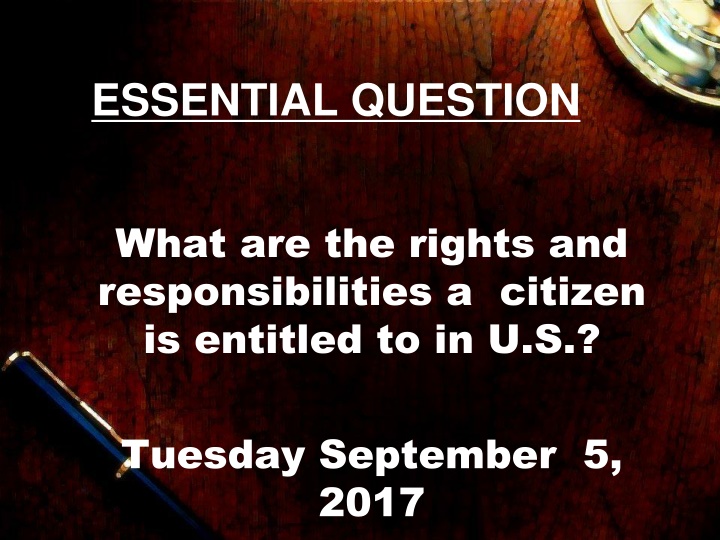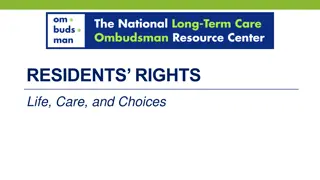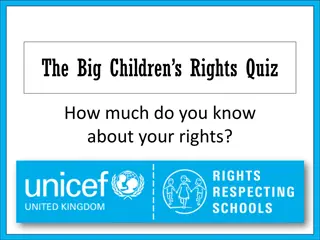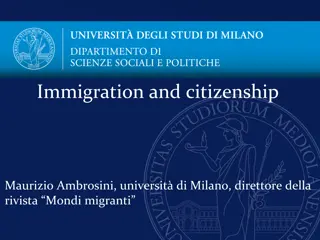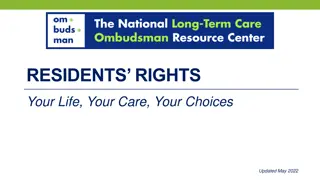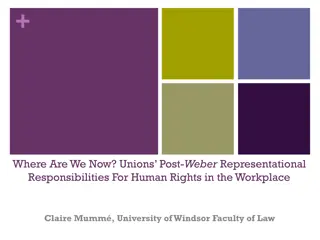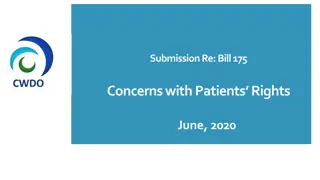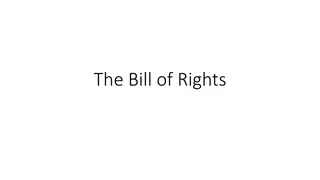Rights and Responsibilities of U.S. Citizens
Explore the fundamental rights and responsibilities of U.S. citizens as outlined in the Bill of Rights, focusing on key amendments such as freedom of speech, the right to bear arms, protection from quartering soldiers, and safeguards against unreasonable searches and seizures. Understand the balance between individual rights and societal needs determined by the Supreme Court.
Download Presentation

Please find below an Image/Link to download the presentation.
The content on the website is provided AS IS for your information and personal use only. It may not be sold, licensed, or shared on other websites without obtaining consent from the author.If you encounter any issues during the download, it is possible that the publisher has removed the file from their server.
You are allowed to download the files provided on this website for personal or commercial use, subject to the condition that they are used lawfully. All files are the property of their respective owners.
The content on the website is provided AS IS for your information and personal use only. It may not be sold, licensed, or shared on other websites without obtaining consent from the author.
E N D
Presentation Transcript
ESSENTIAL QUESTION What are the rights and responsibilities a citizen is entitled to in U.S.? Tuesday September 5, 2017
THE BILL OF RIGHTS Established after the new Constitution was established. The first 10 amendments were to protect the rights of citizens.
Who determines what the Bill of Rights mean? The Supreme Court makes rulings on the meaning The Supreme Court balances the rights of the individual with the needs of society Individual?? Society??
The Bill of Rights The First 10 Amendments to the Constitution Take notes on the slides as they appear. Draw pictures to represent at least four of the amendments.
1st Amendment The 1st Amendment guarantees freedom of religion, speech, the press, assembly, and petition. This means that we all have the right to: practice any religion we want to to speak freely to assemble (meet) to address the government (petition) to publish newspapers, TV, radio, Internet (press)
2nd Amendment The 2nd Amendment protects the right to bear arms, which means the right to own a gun.
3rd Amendment The 3rd Amendment says No soldier shall, in time of peace be quartered in any house, without the consent of the owner, nor in time of war, but in a manner to be prescribed by law. This means that we cannot be forced to house or quarter soldiers.
4th Amendment The 4th Amendment protects the people from unreasonable searches and seizures. This means that the police must have a warrant to enter our homes. It also means the government cannot take our property, papers, or us, without a valid warrant based on probable cause (good reason).
5th Amendment The 5th Amendment protects people from being held for committing a crime unless they are properly indicted, (accused) You may not be tried twice for the same crime (double jeopardy) You don t have to testify against yourself in court. (Self-incrimination)
6th Amendment The 6th Amendment guarantees a speedy trial (you can t be kept in jail for over a year without a trial) an impartial jury (doesn t already think you are guilty) that the accused can confront witnesses against them the accused must be allowed to have a lawyer
7th Amendment The 7th Amendment guarantees the right to a speedy civil trial. A civil trial differs from a criminal trial. A civil trial is when someone sues someone else. A criminal trial is when the state tries to convict someone of a crime.
8th Amendment The 8th Amendment guarantees that punishments will be fair and not cruel, and that extraordinarily large fines will not be set.
9th Amendment All rights not stated in the Constitution and not forbidden by the Constitution belong to the people. This means that the states can do what they want if the Constitution does not forbid it.
10th Amendment The 10th Amendment states that any power not granted to the federal government belongs to the states or to the people.
Rights A right is something that is owed a person. At school, you have the right to learn. But, you do not have the right to interfere with other s learning
Responsibilities A responsibility is something a person must do. I am responsible for being on task during class.
Rights or Responsibility? Can you list some rights you have? Can you list some responsibilities you have at home, at school, and on teams?
Citizenship Can you list some ways the members of a community show good citizenship?
Becoming a Citizen To become a citizen, one must: Be over 18 and support themselves financially or have someone assume financial responsibility for them Be law-abiding and support the U.S. Constitution Demonstrate understanding of written and spoken English Show basic knowledge of U.S. history and government Go before a naturalization court and take an oath of allegiance to the United States.
Citizens are expected to fulfill a number of important duties. For a representative democracy to work, Americans need to fulfill their civic duties. Duties include Participating in elections Obeying laws Paying taxes Defending the nation Men over 18 may be required to serve in the military in the event of a draft. Serving on juries
Active citizen involvement in government and the community is encouraged. Taking part in the elections process by voting may be a citizen s most vital duty. Citizens should be informed about issues and candidates before voting. Americans may choose to campaign for candidates or issues. Many people help campaigns by giving money to political action committees (PACs).
Americans can influence government and help the community. Work with interest groups, groups of people who share a common interest that motivates them to take political action Write letters to government leaders Attend city council meetings Volunteer for community service groups Neighborhood watch groups can help the police. American Red Cross helps people in times of natural disasters and other emergencies. Girl and Boy Scouts can help the environment and their community.
